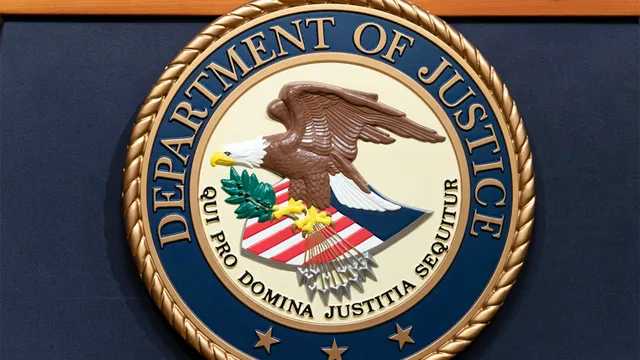
Arrested gang leader faces terrorism charges in historic case
2025-04-25 17:35- The U.S. Justice Department has charged Jose Enrique Martinez Flores, a member of Tren de Aragua, with terrorism and drug distribution offenses.
- Flores is believed to have played a significant role in the gang's drug trafficking operations, catering to the U.S. market.
- This case marks a critical shift in how U.S. authorities address the rising threat posed by organizations like Tren de Aragua.
Express your sentiment!
Insights
In Colombia, U.S. authorities charged Jose Enrique Martinez Flores, a high-ranking member of the Tren de Aragua gang, with terrorism-related offenses and international drug distribution. His arrest occurred on March 30, 2025, following a provisional arrest warrant requested by the United States. The Justice Department's charges, which include providing material support to a designated foreign terrorist organization, mark the first time U.S. officials have pursued terrorism charges against a member of this Venezuelan gang. The gang, notorious for violent crime and drug trafficking, has gained international notoriety and poses a significant threat to U.S. safety. Tren de Aragua has grown in power and influence since its origins in a Venezuelan prison, spreading its operations across South America and now into the U.S. The gang's activities include extortion, human trafficking, and drug smuggling, which have severely impacted communities. In response to these crimes, the Trump administration designated Tren de Aragua as a foreign terrorist organization in February 2025, thus expanding the legal tools available for prosecution. Flores, also known as "Chuqui," allegedly played a critical role within the gang, functioning as a Plaza Boss in Bogotá, and is believed to have participated in the distribution of cocaine intended for sale in the United States. His indictment includes multiple counts of conspiracy concerning the cocaine delivery and supporting criminal aims of the gang. If convicted, he could face life in prison, and the potential penalties highlight the government's serious approach toward dismantling violent criminal networks. This legal action reflects a broader strategy from the U.S. Justice Department to confront and neutralize transnational criminal organizations viewed as threats to national security. Flor said, "TdA is not a street gang – it is a highly structured terrorist organization that put down roots in our country during the prior administration,” emphasizing the administration's commitment to targeting the group comprehensively. The indictments further illustrate the severity of criminal links between the U.S. and the Venezuelan government, which has been accused of facilitating the gang's operations across borders.
Contexts
The Tren de Aragua gang, originating from Venezuela, has grown to become one of the most powerful and notorious criminal organizations in Latin America. Initially formed in the early 2000s, the gang has its roots in the Aragua state, where it began as a small group involved primarily in local crimes. Over the years, however, it has evolved into a transnational network that engages in a range of illicit activities including drug trafficking, extortion, human trafficking, and illegal mining. The gang's notable expansion can be attributed to its ability to adapt to shifting law enforcement strategies and its savvy integration into local economies, which has allowed it to flourish even amidst heightened scrutiny and crackdowns on violence and crime in the region. As a result, the Tren de Aragua has been implicated in numerous violent incidents, often asserting control over territories through coercive means, which heightens its reputation for brutality and intimidation. One of the key factors behind the gang's success is its hierarchical but flexible organization structure that allows for rapid decision-making and innovation in criminal endeavors. This structure has enabled the Tren de Aragua to establish alliances with other criminal groups, further expanding its reach beyond Venezuelan borders into countries such as Colombia, Brazil, and even as far north as the United States. Such alliances are often tactical and can shift based on mutual interests in narcotics or arms trafficking. The transnational activities of the gang have raised concerns among international law enforcement agencies, making it a target for cooperation between nations seeking to dismantle its operations. The gang's extensive member recruitment, often from impoverished communities, ensures a steady pipeline of new participants willing to engage in criminal activities for economic gain. In addition to its criminal operations, the Tren de Aragua has also been involved in various social activities which they use to gain support within the communities they operate. By providing financial support, helping with local projects, or engaging in acts of charity, they attempt to create a façade of legitimacy and loyalty among local populations. However, such tactics ultimately serve to enhance their power and recruit more members, as they leverage these social ties to further entrench themselves within communities. The gang’s influence on local politics and economies showcases the complexities involved in combating such organizations, as they exploit existing vulnerabilities within these systems to further their own agenda. The Venezuelan government’s ongoing struggles with corruption, economic instability, and law enforcement challenges have significantly contributed to the flourishing of the Tren de Aragua gang. As state authority weakens, the gang can expand its control and assert dominance without facing substantial resistance. This situation has created a cycle of violence and instability, making it difficult for new policies or interventions to take place effectively. Moreover, the global drug trade's dynamism means that the Tren de Aragua will likely continue to evolve and adapt, ensuring that it remains a formidable force in organized crime well into the future. The collaborative efforts needed to disrupt such organizations demand a unified strategy across national borders, highlighting the importance of international cooperation in addressing the complexities posed by groups like Tren de Aragua.